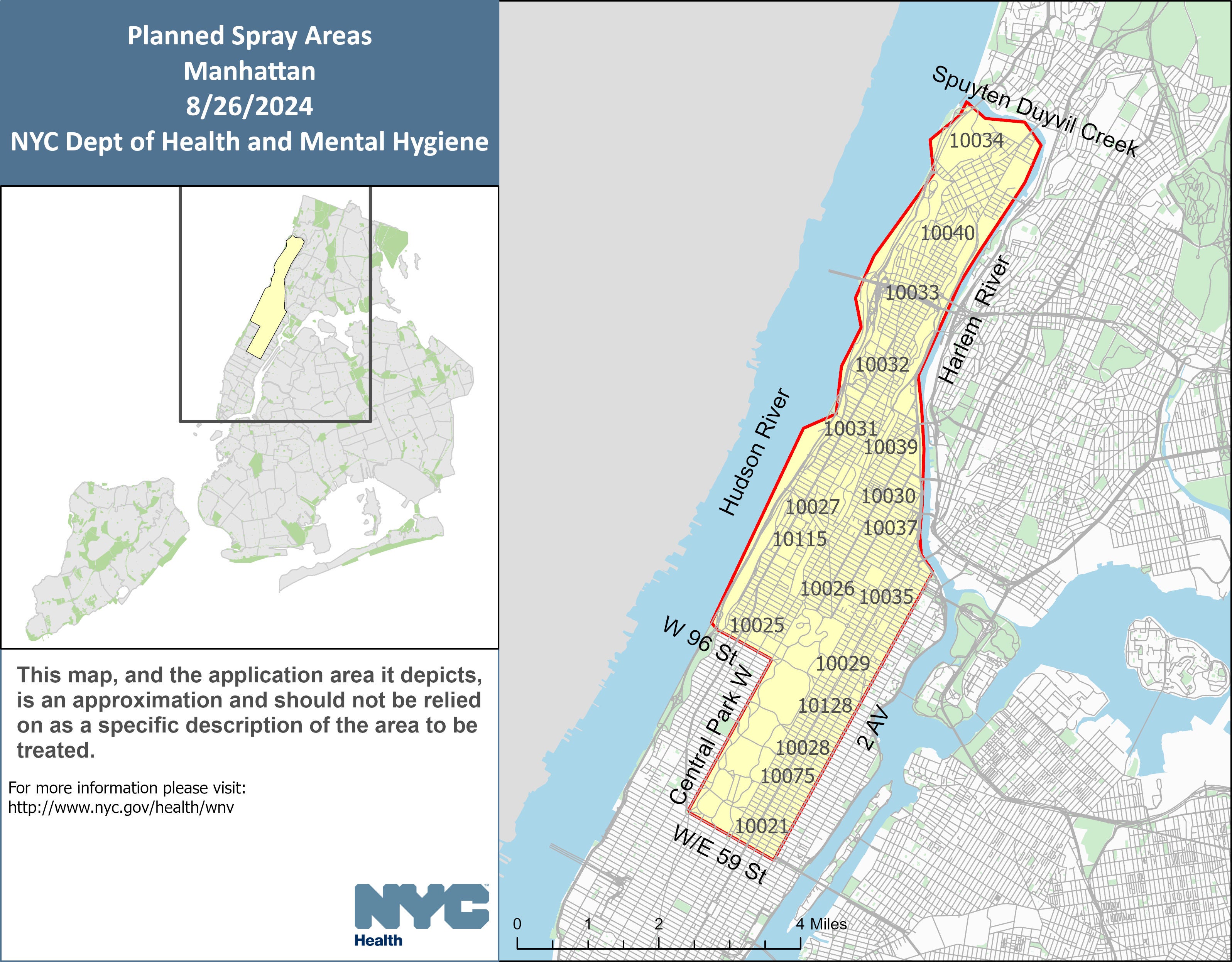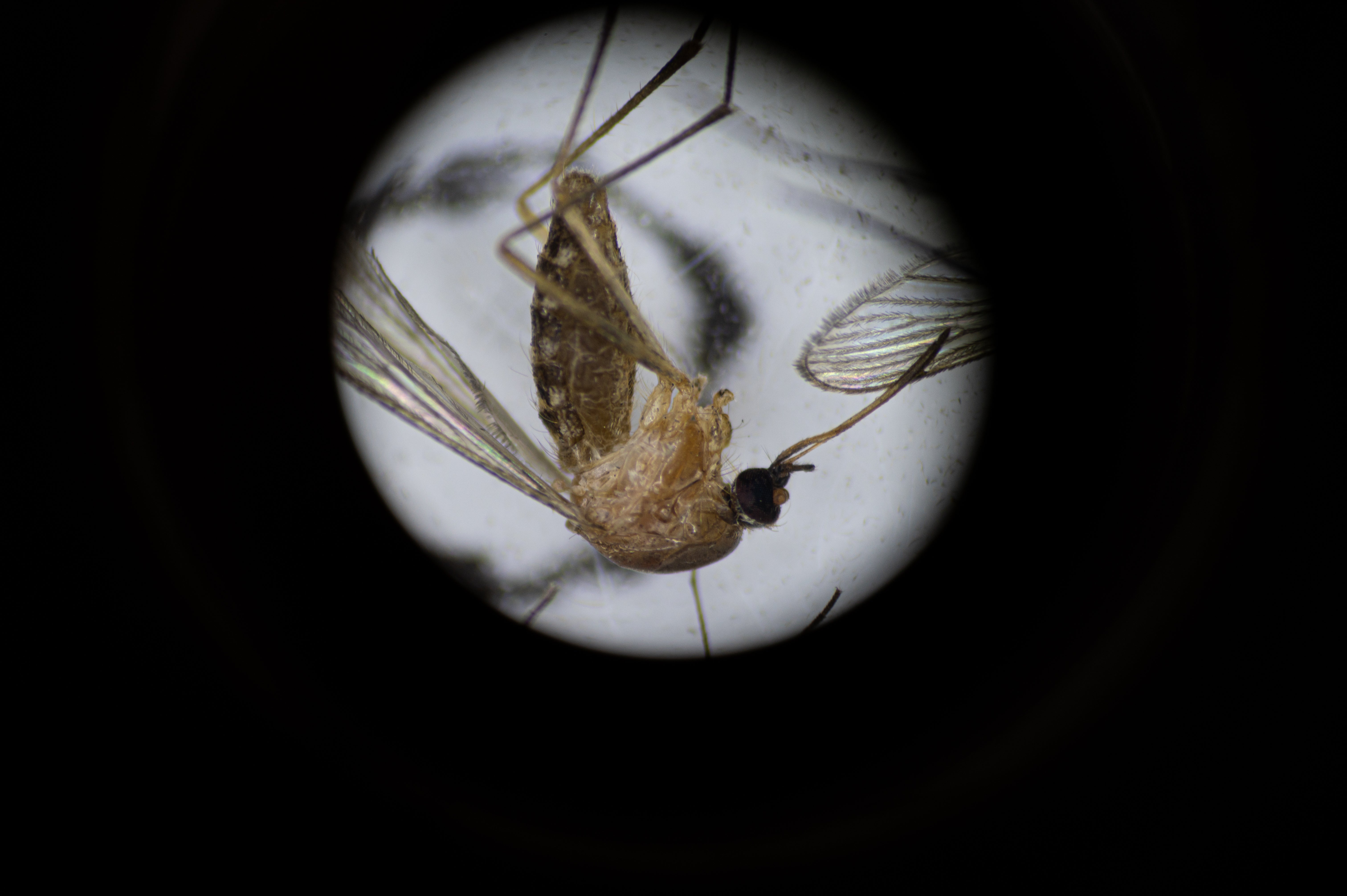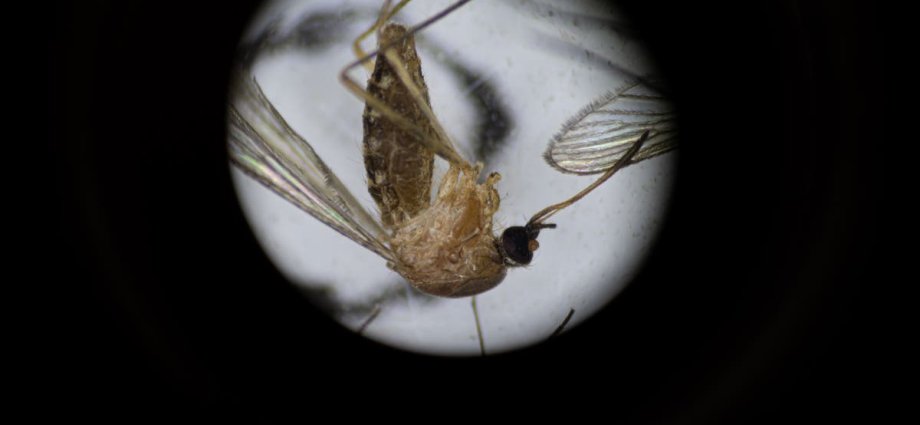New York City is planning to spray pesticides to help prevent the spread of mosquitoes, and potential diseases.
The announcement comes days after Dr Anthony Fauci, former National Institute of Allergy and Infectious Diseases Director and the government’s top infectious disease official during the pandemic, was hospitalized with West Nile virus.
Dr Fauci, 83, spent around a week in the hospital after developing fever, chills, and severe fatigue. He believes he contracted West Nile in the backyard of his Washington DC home, and is expected to make a full recovery, CBS News’ chief medical correspondent Dr. Jonathan LaPook tweeted on Saturday.
In New York City, the first cases of West Nile virus were reported a week ago in Queens and Manhattan. Four people were diagnosed and three hospitalized.
West Nile virus isn’t the only mosquito-borne illness New Yorkers have to worry about.
Last Wednesday, several areas of Massachusetts were placed under voluntary curfew after one elderly man contracted the dangerous and often-fatal Eastern Equine Encephalitis virus, and was hospitalized.
One case has been found in both Vermont and New Jersey, according to the Centers for Disease Control and Prevention (CDC).
Eastern Equine Encephalitis has also been found in horses in eight New York counties.

West Nile affects the central nervous system but the majority of people who contractthe disease do not develop any symptoms.
However, about one in 150 become severely ill and around one out of ten die due to inflammation around the brain and spinal cord.
Those at greatest risk are over 60s along with people with underlying medical conditions. There is no treatment for West Nile virus, and most people with fever from the virus recover completely. The virus is the leading cause of mosquito-borne disease in the continental US.
Only a handful of Eastern Equine Encephalitis cases are reported each year, and infection is very serious. Approximately 30 percent of those infected with the virus die, and those who survive, are left with neurologic problems. There are no vaccines or medicines to treat or prevent the disease.
The combination of health threats has led to the New York health department beginning to spray pesticides in the Bronx and Staten Island last week.
The next scheduled spray events are in Manhattan and Brooklyn. Manhattan areas will be sprayed on Monday and neighborhoods in Brooklyn can expected to be sprayed on Wednesday. The department said in an advisory last week that, should weather allow, trucks would spray between the hours of 8:30 p.m. and 6 a.m. in both boroughs.
The health department is spraying “very low concentrations” of adulticide, a type of insecticide used to kill adult mosquitoes. The city is deploying Anvil 10+10, Duet, and MERUS3, which are all available for purchase online.

The products are applied to where mosquitoes like to hang out – under plants, in tall grasses, and under the leaves of trees and bushes. The eaves of buildings and under decks and porches will also be sprayed.
The CDC says adulticides may be used as a do-it-yourself application and, when used according to specifications, do not harm people, pets, and the environment.
However, people who are sensitive to spray ingredients may experience short-term eye or throat irritation or rash, and those with respiratory conditions may also be affected.
The department advised residents to stay indoors when possible and – although unnecessary – close air conditioning vents or choose the recirculate function. In addition, they encourage New York residents to reduce exposures to mosquitoes, making sure windows have screens and emptying any standing water. Mosquitoes lay their eggs in standing water.
Mosquitoes are typically most active from April through October in New York but scientists say higher temperatures linked to the climate crisis can accelerate mosquito population growth and biting rates.
Only a few of New York City’s 40-plus species of mosquito may carry or spread West Nile virus. It is primarily transmitted by several Culex species, like the European native Culex pipiens, although the population size of these mosquitoes remains unknown in the US.
The spread of Eastern Equine Encephalitis also occurs through Culex species.











